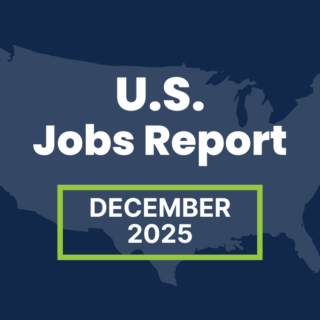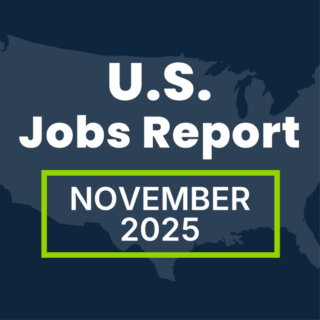By James Chorley, Talent Solutions Director, RPO
I recently wrote about what our children will do in the future, but what about us?! We all know about the technological disruption that has exploded onto the scene. We’ve seen the data on the number of inactive people at working age, but I didn’t fully appreciate the unprecedented demographic change we are about to see.
While much attention has been given to the rise of automation, artificial intelligence (AI), and the creation of “jobs that don’t exist yet,” an equally pressing challenge looms in the background: the UK’s declining birthrate and ageing population.
Together, these forces are reshaping the labour market, creating an urgent need for new skills and a more agile approach to workforce development.
This article explores the critical skills shortages the UK faces today and anticipates the skills required for the future. It also examines how the intertwining challenges of an ageing workforce and emerging roles demand nothing less than a revolution in the way we think about education, training, and employment.
The Demographic Imperative: Fewer Hands, Greater Need
The demographic data is stark. The fertility rate in England and Wales dropped to a record low of 1.44 children per woman in 2023, far below the replacement level of 2.1. Meanwhile, people are living longer, leading to a rapidly ageing population. By 2032, the number of children in the UK is projected to decline by 6.4%, while the population of pensionable age will grow by nearly 14%. The number of people aged 85 and over will almost double by mid-2047.
This demographic shift has profound implications for the workforce. A smaller proportion of younger workers will be available to support an increasing number of retirees, creating economic and social strain. The old-age dependency ratio—the number of working-age people supporting each retiree—is set to climb significantly. While more older workers are staying in the labour market (with record employment levels for those aged 65 and over), this is not enough to offset the broader decline in workforce numbers.
For the UK, this isn’t just an economic inconvenience; it’s a national necessity to address skill shortages and reimagine workforce participation across all age groups.
The Current Crisis: Skills in Critical Shortage
Even without demographic pressures, the UK is already grappling with widespread skills gaps. Almost 70% of businesses reported recruitment difficulties, with chronic shortages in high-growth sectors like digital technology, advanced manufacturing, health and social care, education, and construction.
Specific Skills in Severe Shortage:
- Digital Skills: A staggering 72% of businesses reported vacancies requiring digital skills, yet only 11% of workers possess advanced digital literacy.
- Green Skills: With the government’s ambition to become a clean energy superpower, the UK faces a shortfall of 200,000 workers with green skills.
- Medical and Scientific Skills: The health and social care sector is in dire need, with 40% of vacancies being skill-shortage vacancies.
- STEM Disciplines: The UK struggles to attract young people and women into STEM fields, exacerbating shortages across sectors like manufacturing, life sciences, and teaching.
- Construction: Over half of all vacancies in the construction sector are classified as skill-shortage vacancies, impacting industries from advanced manufacturing to defence.
These shortages are not just a recruitment issue; they also reveal a deeper problem within the existing workforce. Over 1.7 million employees were reported as not being fully proficient in their roles.
The Horizon: Skills That Don’t Exist Yet
The rise of automation and emerging technologies isn’t just transforming jobs—it’s creating entirely new ones. From AI specialists to sustainability experts, future roles will demand a fusion of technical expertise and human-centric skills.
Emerging Roles:
- AI and Machine Learning Specialists
- Cybersecurity Analysts
- Sustainability and Environmental Specialists
- Data Analysts and Data Scientists
- Robotics Engineers
- Blockchain Developers
Transforming Traditional Roles:
- Healthcare professionals must adapt to digital patient management.
- Teachers will need to integrate technology into learning.
- Manufacturing workers will oversee automated systems.
The common thread across these roles is the demand for adaptability, advanced technical knowledge, and the ability to learn continuously.
The Foundational Enablers: Essential Cross-Cutting Skills
As automation takes over routine tasks, uniquely human skills will become the labour market’s most valuable currency. The skills most in demand by 2035 include:
- Digital Literacy: A baseline requirement for all workers.
- Critical Thinking: Essential for solving complex, non-routine problems.
- Adaptability and Lifelong Learning: Workers must expect 39% of their skills to become outdated by 2030.
- Emotional Intelligence: Empathy, communication, and teamwork will distinguish human workers from machines.
Strategies for a Resilient Workforce
To address these challenges, Talent and TA leaders must adopt systemic solutions to future proof Talent within their sectors:
- Agile Education and Training: From shorter, modular apprenticeships to investment in STEM education, training must evolve to keep pace with technological advancements.
- Lifelong Learning: Employers must reverse the trend of declining investment in training, offering continuous upskilling opportunities.
- Holistic Workforce Support: Flexible work environments and improved careers guidance can help attract underrepresented groups and retain older workers.
- Strategic Sponsorship: Simplified worker visa regimes can fill immediate gaps while longer-term solutions take shape.
Conclusion: Thinking Differently About the Workforce
Solving the UK’s workforce challenges means rethinking who we hire, how we train, and what we value in the labour market. As skill shortages deepen and demographic pressures mount, we must start thinking differently about the jobs that will remain in severe shortage over the coming decades.
Embrace Older Generations
Older workers represent an untapped reservoir of experience and talent. By creating flexible work environments, addressing age discrimination, and investing in training for older generations, businesses can benefit from their expertise and keep them active in the workforce.
Accelerate Apprenticeships for All Ages
The traditional model of apprenticeships must evolve. Short, sharp apprenticeships designed for workers of all ages and experiences can rapidly fill skill gaps in critical areas like digital, green energy, and advanced manufacturing. These programs should be modular, flexible, and responsive to emerging technologies.
Foster Lifelong Learning
The future workforce must be equipped to adapt continuously. Employers, educators, and policymakers must work together to make lifelong learning accessible, affordable, and relevant. Programs like Skills Bootcamps offer a promising model for accelerated training in high-demand fields.
The UK’s ability to thrive in the face of demographic decline and technological disruption hinges on its willingness to embrace bold, creative solutions. By fostering a culture of inclusion, agility, and continuous learning, we can build a resilient workforce that bridges generations, adapts to new challenges, and excels in emerging roles.
The balancing act will not be easy, but the rewards—economic growth, social cohesion, and future prosperity—are well worth the effort. It’s time to act, rethink, and reimagine what the workforce can be.



